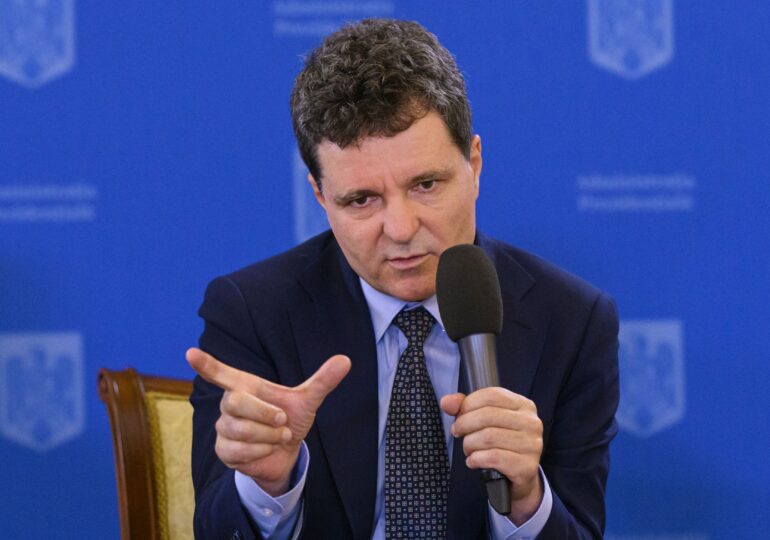The President of Romania, Nicușor Dan, announced on Monday that the new document regarding the National Defense Strategy will be finalized and adopted by November 26, marking six months since he took office.
The head of state specified that the document introduces two major changes: increased focus on hybrid warfare and a „frontal attack” on corruption, considered a national security vulnerability.
"The National Security Adviser, Mr. Diaconescu, has corresponded with all institutions with responsibilities in national security. Two files have been compiled, and based on all opinions, he has drafted a preliminary document for the moment, which we are all reviewing once more, after which it will be passed through the Supreme Defense Council (CSAT) and then sent to Parliament. The deadline of November 26, when it will be six months since my inauguration as president, will be respected," explained Nicușor Dan to stiriprotv.ro.
The President emphasized that Romania needs to approach hybrid threats, such as cyber attacks, disinformation campaigns, and Russian influence in the online space, with greater seriousness.
"We need to pay much more attention to what is called hybrid warfare, meaning cyber attacks, systematic disinformation procedures, and the influence of the Russian Federation in the social media space. (...) The second change that I strongly desire is a frontal attack on the phenomenon of corruption, with all necessary precautions, because we have had a long discussion in society about the interference of the Romanian Intelligence Service in the activities of the Prosecutor's Office," stated the head of state.
Involvement of the Romanian Intelligence Service (SRI)
Nicușor Dan stated that he wants the Romanian Intelligence Service to be more actively involved in preventing and identifying cases of corruption, without interfering with the activities of the Prosecutor's Office.
"We want corruption to be a concern of the Romanian Intelligence Service, but there should be a clear demarcation between services and the Prosecutor's Office. Essentially, the role of the Intelligence Service is to produce as much consistent information as possible, so that once information is transmitted to the Prosecutor's Office, the SRI will no longer be involved with that specific issue, and the Prosecutor's Office will start investigating the alleged corruption offense," specified the president.
About Interceptions: "We Have a Very Clear Separation"
The head of state explained the legal limits of interceptions, emphasizing that these can only be carried out by the SRI based on a national security warrant issued by the High Court.
"Regarding interceptions, the legislation is very clear: they can only be conducted by the SRI under a national security warrant issued by judges from the High Court. On the other hand, interceptions necessary in a criminal investigation must also be ordered by a judge, but are the responsibility of the Prosecutor's Office. So we have a very clear separation," said Nicușor Dan.
He added that he is "very optimistic" that the new strategy will designate corruption as a threat to national security.
How the President Views the Contribution of the SRI
When asked about the specific role the SRI should play, Nicușor Dan explained that the service has valuable human resources and expertise for identifying vulnerable areas.
"The SRI is an institution with many competencies in the field of intelligence, practical competencies, not just duties. There are people who know the social, political, and economic environment very well and who can, through the nature of their profession, identify and access corruption areas to transfer them to the Prosecutor's Office," stated the president.
He believes that this process can be initiated both at the request of prosecutors and on the SRI's own initiative.
"And on their own initiative, because - and I am very optimistic that this will be in the National Security Strategy - corruption will be a concern that can affect national security," concluded Nicușor Dan.

